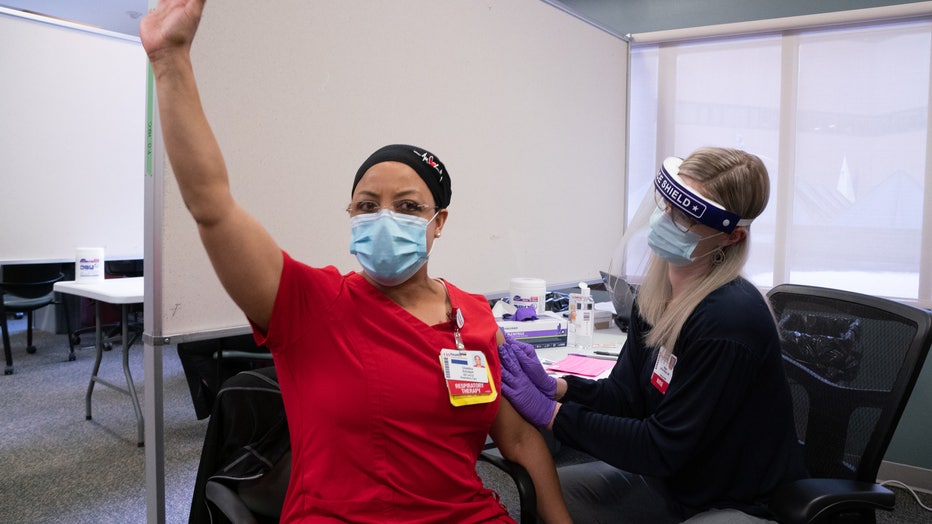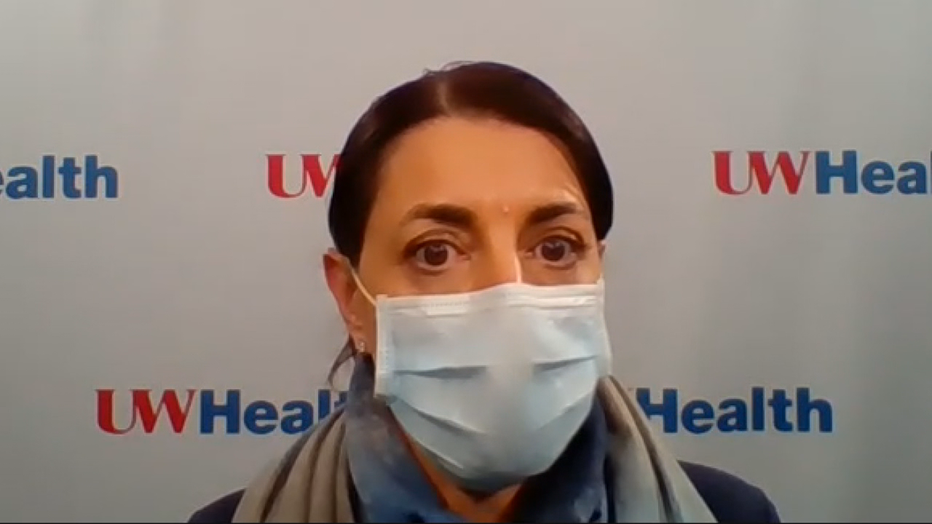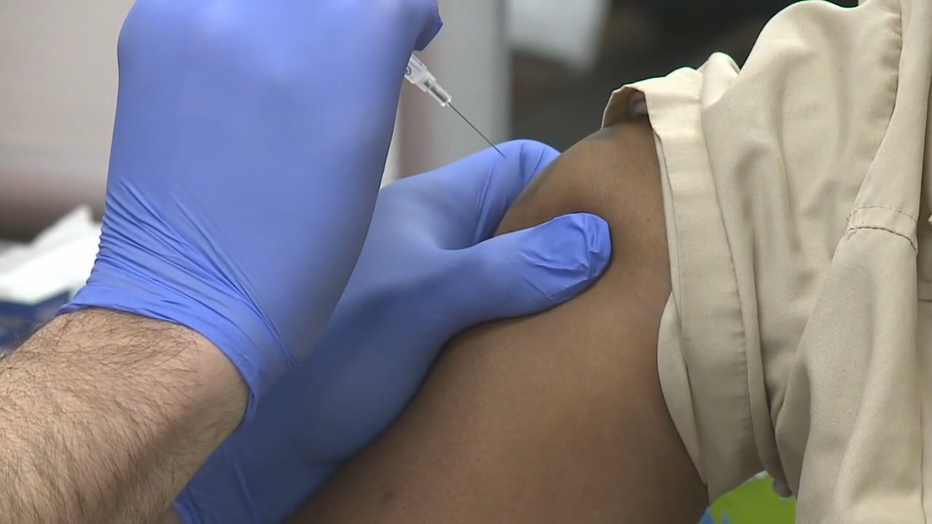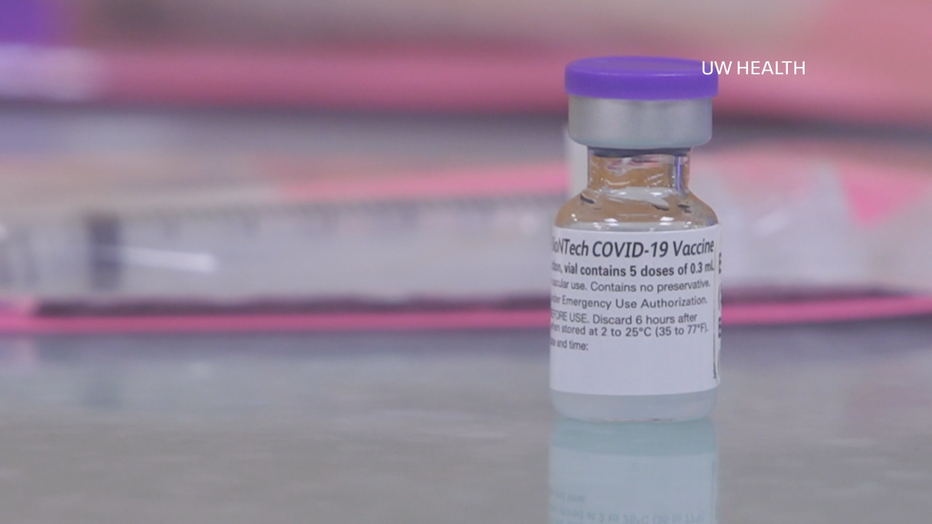Health officials work to reconcile vaccine distrust in Black community

Health officials work to reconcile vaccine distrust in Black community
UW Health became Wisconsin's first health care system to receive and distribute doses of Pfizer's COVID-19 vaccine. They're also on the forefront of engaging with historically marginalized communities.
MADISON, Wis. - More than 1 million Americans have received their first dose of the COVID-19 vaccine, marking an important milestone in combatting the coronavirus pandemic. While millions more are eager to get the shot, others remain leery of it.
Health experts say that in order to return to life as it was, 70% to 75% of the population will need to be vaccinated.

Respiratory therapist Tina Schubert became the first of UW Health’s health care heroes to receive the Pfizer COVID-19 vaccine at approx. 2:30 p.m. CT Dec. 14 (Credit: UW Health/John Maniaci)
UW Health became Wisconsin's first health care system to receive and distribute doses of Pfizer's COVID-19 vaccine starting on Dec. 14. Now, it is also on the forefront of engaging with historically marginalized communities about the vaccine.

Shiva Bidar-Sielaff
"Education and engagement is really important," said Shiva Bidar-Sielaff, UW Health vice president and chief diversity officer. "We do need to acknowledge there has been a lot of wrong. In the Black community, certainly, the mistrust goes way back to the way health care research used African Americans for many different things."
Bidar-Sielaff said one of the most well-known cases is the Tuskegee study of untreated syphilis in black men that began in the 1930s -- lasting for decades.
"The Black men just did not receive the treatment, and they were followed to see what would happen," said Bidar-Sielaff. "Really, an unethical way of not providing treatment that is needed."

Recently, Bidar-Sielaff was invited to join a Facebook Live event with the Foundation for Black Women's Wellness, based in Madison.
"How do we reconcile that?" asked Dr. Jasmine Zapata with the University of Wisconsin Department of Pediatrics. "How do we make the best decision?"
FREE DOWNLOAD: Get breaking news alerts in the FOX6 News app for iOS or Android
"It’s imperative to understand that work, to know what it means for us as we prepare to make decisions about the vaccines," said Lisa Peyton-Caire, CEO and founder of the Foundation for Black Women's Wellness.

Peyton-Caire said they're working to provide the community factual information to help them determine what's best for their families.
"Safety, safety, safety is one of the top concerns," said Peyton-Caire.
Bidar-Sielaff said these conversations are crucial.
"The more conversations there is, the more understanding on both sides, both from the health system side and the community side about good information, how to make good decisions with scientifically based information," said Bidar-Sielaff.
UW Health is also working to ensure easy access to the vaccine in under-served communities when it becomes available for wider distribution.

